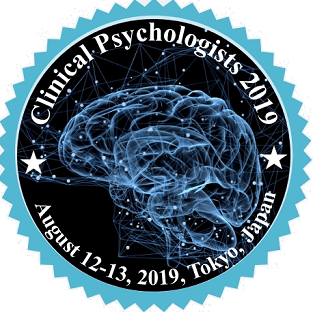
Joseph Rosado
Medical Director Med Diagnostic Inc., DBA Coastal Wellness Centers; USA
Title: A Clinical Case Study of a 45 y/o female suffering with PTSD, Bipolar D/O, Depression, Anxiety and Chronic Pain Syndrome taking 42-58 pills per day as weaned off of all medications using Medical Cannabis
Biography
Biography: Joseph Rosado
Abstract
Posttraumatic stress disorder (PTSD) is a prevalent, chronic, and disabling anxiety disorder that may develop following exposure to a traumatic event. Although the use of Medical Cannabis for the treatment of physical and psychological disorders is controversial, medical marijuana is currently legal in Canada, 30 states in the United States and a handful of countries in South America. Studies published in Molecular Psychiatry and Science Daily showed that treatment using particular compounds found in marijuana may benefit those with PTSD, and that “plant-derived cannabinoids [psychoactive chemicals] such as marijuana may possess some benefits in individuals with PTSD by helping relieve haunting nightmares and other symptoms of PTSD” and As a result of taking medical marijuana, participants reported a decrease in re-experiencing the trauma, less avoidance of situations that reminded them of the trauma, and a decline in hyper-arousal, respectively. There’s also convincing evidence from multiple studies for reduced endocannabinoid availability in PTSD, i.e., reduced levels of the endocannabinoid anandamide and compensatory increase of CB1 receptor availability in PTSD, and an association between increased CB1 receptor availability in the amygdala and abnormal threat processing, as well as increased severity of hyperarousal, but not dysphoric symptomatology, in trauma survivors. Other studies suggest that Medical Cannabis therapy, as an adjunct to a traditional analgesic therapy, can be an efficacious tool to make more effective the management of chronic pain and its consequences on functional and psychological dimensions. The patient in this case study had been treated for over 20 years with multiple opiates, SSRIs, SNRIs, typical and atypical antipsychotics, antiepileptics, etc. to manage her conditions; I will demonstrate how in less than three months, she was off of all of the pharmacological treatments and solely using Medical Cannabis is having a quality of life she had not experienced since before her adolescence.

